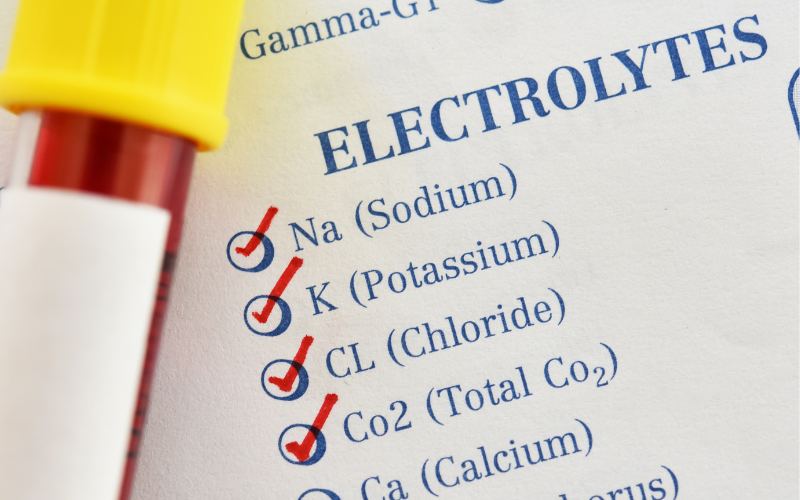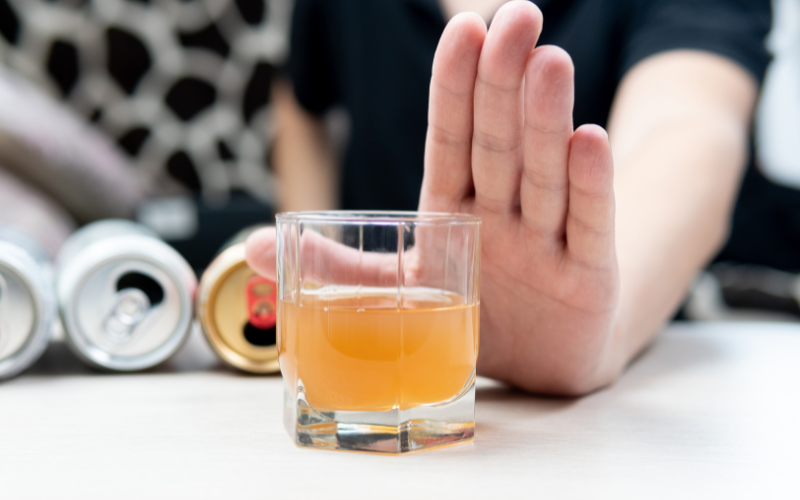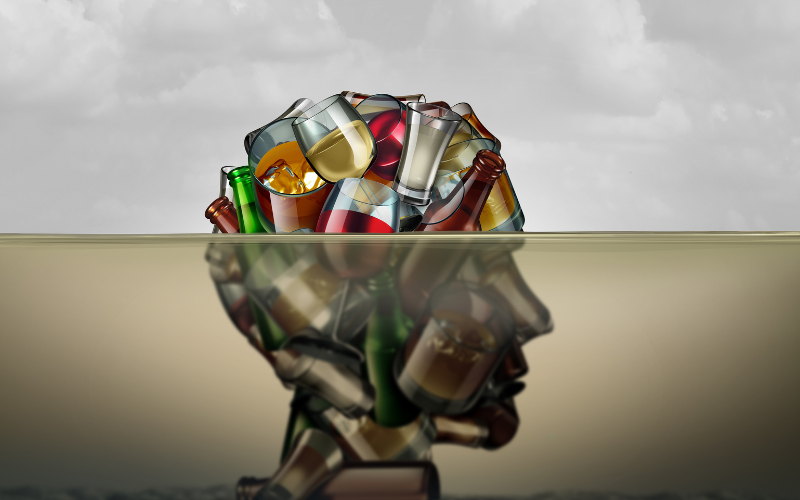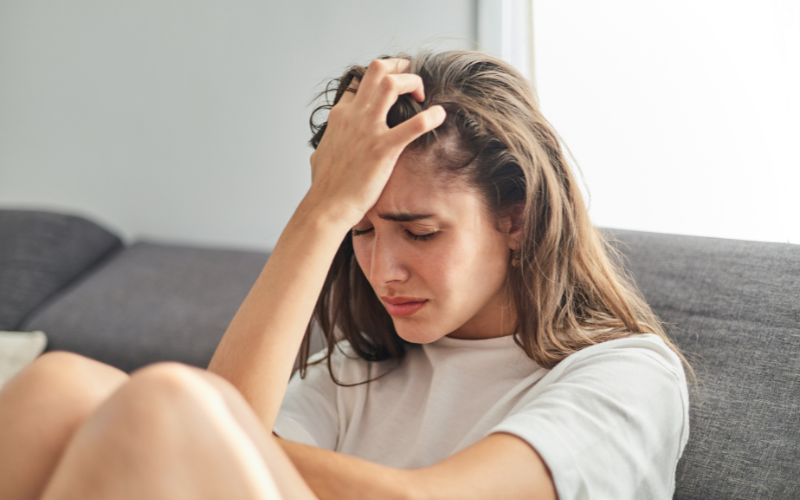We all know the feeling of a hangover after a night of heavy drinking. The morning after can be a miserable experience with headaches, fatigue, nausea, and other unpleasant symptoms. But why does alcohol cause a hangover? In this article, we will explore the direct effects of alcohol on the body, as well as other factors that contribute to the misery of a hangover. We’ll also share some tips on how to prevent and lessen the severity of hangovers.
Hangover Effects Caused by Alcohol
Dehydration and Electrolyte Imbalance
One of the main reasons alcohol causes a hangover is dehydration. Alcohol consumption causes increased urine production, sweating, vomiting, and diarrhea, which all dehydrate the body. Dehydration can cause many common hangover symptoms such as thirst, weakness, dry mouth and nose, dizziness, and lightheadedness. To prevent dehydration, it’s important to drink plenty of water while drinking alcohol, and to continue hydrating the following day.
Gastrointestinal Disturbances
Excessive alcohol consumption can irritate the stomach and intestines, causing inflammation of the stomach lining (gastritis) and delayed stomach emptying. Chemicals secreted by the pancreas and intestines can cause abdominal pain, nausea, and vomiting. To prevent these symptoms, it’s best to drink alcohol in moderation and to eat a meal before or while drinking.
Low Blood Sugar
Alcohol consumption can inhibit glucose production and deplete glucose reserves stored in the liver. Because glucose is the brain’s main energy source, low blood sugar contributes to the fatigue, weakness, and mood disturbances of hangovers. Eating a meal before or while drinking, as well as consuming foods high in complex carbohydrates the following day, can help maintain blood sugar levels.
Disruption of Sleep and Other Biological Rhythms
Alcohol-induced sleep is usually of shorter duration and poorer quality than normal sleep, causing fatigue. Alcohol can also disrupt the body’s daily temperature rhythm, nighttime secretion of growth hormones, and cortisol release, all of which can produce symptoms akin to jet lag. To prevent disruption of sleep and other biological rhythms, it’s best to drink alcohol in moderation and to avoid consuming alcohol too close to bedtime.
Headache
Alcohol intoxication causes widening of blood vessels (vasodilation), which can cause a headache. Alcohol consumption also affects the production of histamine, serotonin, and prostaglandins—hormones thought to contribute to headaches. To prevent headaches, it’s best to drink clear liquors such as gin and vodka, which cause fewer hangover effects than whiskey, brandy, and red wine because they contain fewer congeners.
Alcohol Withdrawal
Heavy drinking depresses the central nervous system. When alcohol is withdrawn, it can go into an unbalanced hyperactivity state. This can cause the tremors and rapid heartbeat associated with hangovers. Many of the signs and symptoms of hangover overlap the symptoms of alcohol withdrawal syndrome. To prevent alcohol withdrawal symptoms, it’s best to drink alcohol in moderation and to avoid binge drinking.
Effects of Alcohol Metabolites
In your body, alcohol dehydrogenase (ADH) and aldehyde dehydrogenase (ALDH) break alcohol molecules down so they can be eliminated. Alcohol is metabolized by ADH to acetaldehyde, which is then broken down further into acetate. Some people have genetic variants of ALDH that allow acetaldehyde to accumulate and cause toxic effects. Although acetaldehyde is no longer in the body when the blood alcohol level reaches zero, its toxic effects can persist into the hangover period, researchers believe. To prevent toxic effects of acetaldehyde, it’s best to drink alcohol in moderation and to avoid binge drinking.

Hangover Effects Caused by Other Factors
Congeners
Most alcoholic beverages contain congeners, chemicals that contribute to their taste, smell, and appearance. These compounds can exacerbate hangover symptoms. Clear liquors such as gin and vodka cause fewer hangover effects than whiskey, brandy, and red wine because they contain fewer congeners. Consuming drinks with fewer congeners and drinking alcohol in moderation can help prevent hangover symptoms caused by congeners.
Use of Other Drugs
People who drink heavily often use other drugs, and many smoke cigarettes. These substances can cause their own set of hangover-like symptoms. Although the use of marijuana, cocaine, and other drugs can contribute to situations that foster excessive alcohol intake, their exact effects on alcohol hangovers are not known. Avoiding the use of other drugs and smoking can help prevent the exacerbation of hangover symptoms.
Personal Influences
Certain personality traits, such as shyness, intensify hangover feelings and create a sense of “hangxiety.” Negative life events, feelings of guilt, and the risk of alcoholism often produce acute hangover symptoms. People who have a family history of alcoholism tend to have worse hangovers than drinkers who have no family history of alcoholism. However, keep in mind that people with a family history of alcoholism generally consume more alcohol than those who do not have a family history.
How to Prevent and Lessen Severity of Hangovers
Preventing and lessening the severity of hangovers is possible with a few simple steps. It’s important to drink alcohol in moderation and to avoid binge drinking. Eating a meal before or while drinking can help prevent gastrointestinal disturbances and maintain blood sugar levels. Drinking plenty of water while drinking alcohol and continuing to hydrate the following day can prevent dehydration. Consuming clear liquors such as gin and vodka, which contain fewer congeners, can help prevent headaches. Avoiding the use of other drugs and smoking can prevent the exacerbation of hangover symptoms. And getting enough sleep and maintaining regular biological rhythms can prevent disruptions to sleep and other bodily functions.

FAQs
What is a hangover?
A hangover is a set of symptoms experienced after excessive alcohol consumption. Symptoms can include headache, fatigue, nausea, vomiting, dehydration, and gastrointestinal disturbances.
Why does alcohol cause a hangover?
Alcohol causes a hangover by directly contributing to dehydration, gastrointestinal disturbances, low blood sugar, disruption of sleep and other biological rhythms, headache, and alcohol withdrawal. Other factors such as congeners, use of other drugs, personal influences, and family history of alcoholism can also contribute to hangover symptoms.
Can hangovers be prevented?
Hangovers can be prevented by drinking alcohol in moderation, eating a meal before or while drinking, drinking plenty of water while drinking alcohol, consuming clear liquors such as gin and vodka, avoiding the use of other drugs and smoking, and maintaining regular biological rhythms.
How long does a hangover last?
The duration of a hangover varies from person to person and depends on the amount of alcohol consumed. Hangovers can last from several hours to several days.
What can be done to lessen the severity of a hangover?
To lessen the severity of a hangover, it’s important to drink alcohol in moderation, eat a meal before or while drinking, drink plenty of water while drinking alcohol, consume clear liquors such as gin and vodka, avoid the use of other drugs and smoking, and maintain regular biological rhythms.

Let’s recap
In conclusion, a hangover is a set of symptoms experienced after excessive alcohol consumption. The direct effects of alcohol on the body, such as dehydration, gastrointestinal disturbances, low blood sugar, disruption of sleep and other biological rhythms, headache, and alcohol withdrawal, are the main contributors to hangover symptoms. Other factors such as congeners, use of other drugs, personal influences, and family history of alcoholism can also exacerbate hangover symptoms.
Fortunately, by understanding the causes of hangovers and taking the necessary steps to prevent or lessen their severity, you can enjoy alcohol in moderation without experiencing the misery of a hangover the next day.




